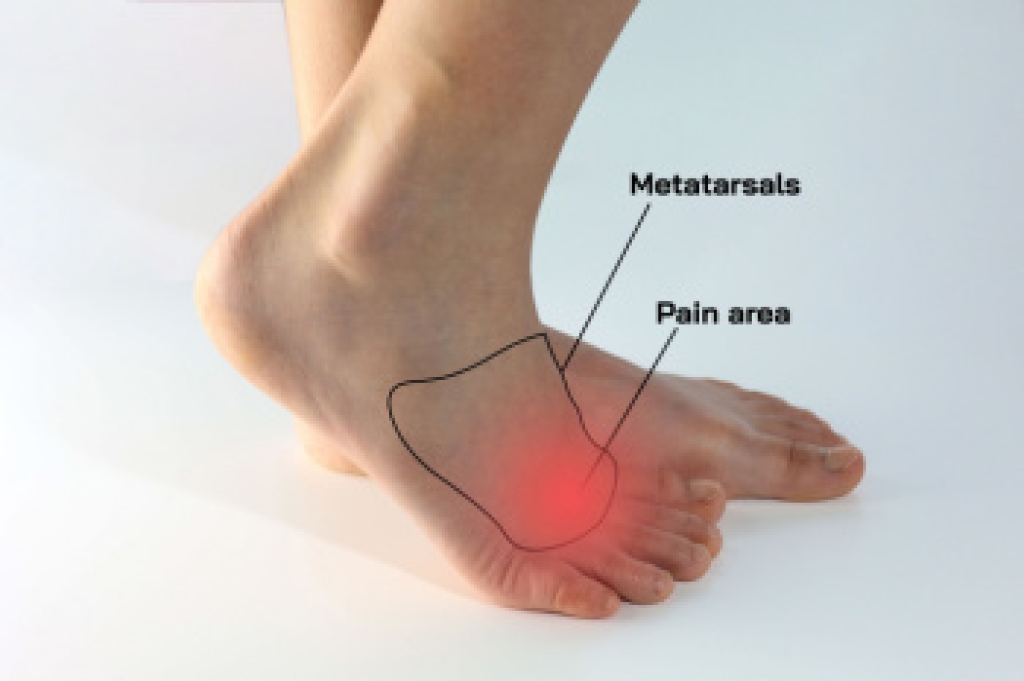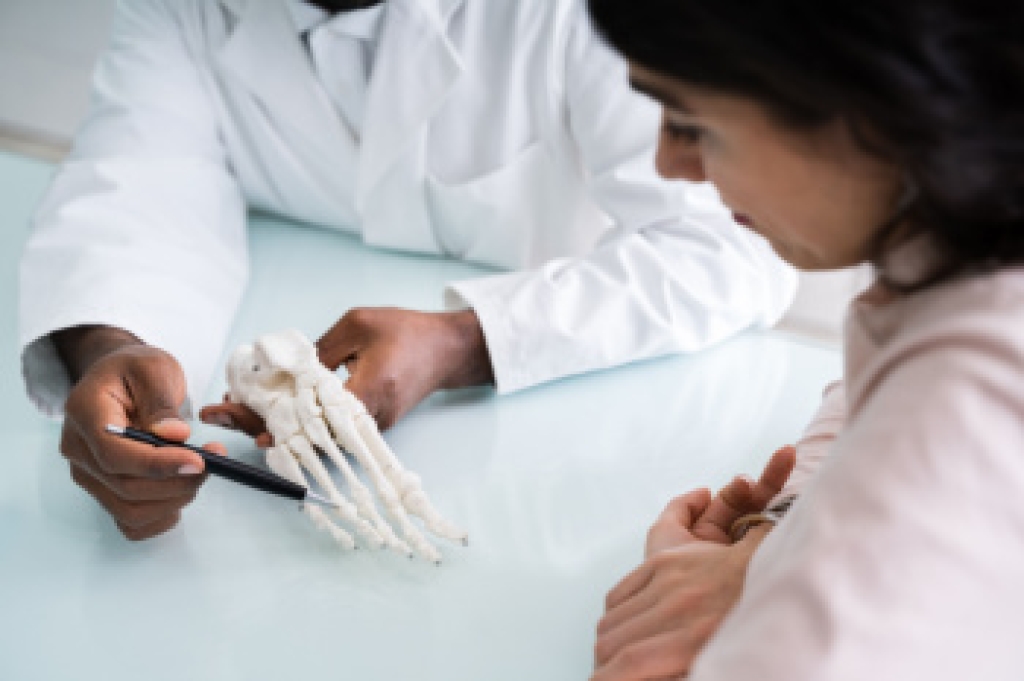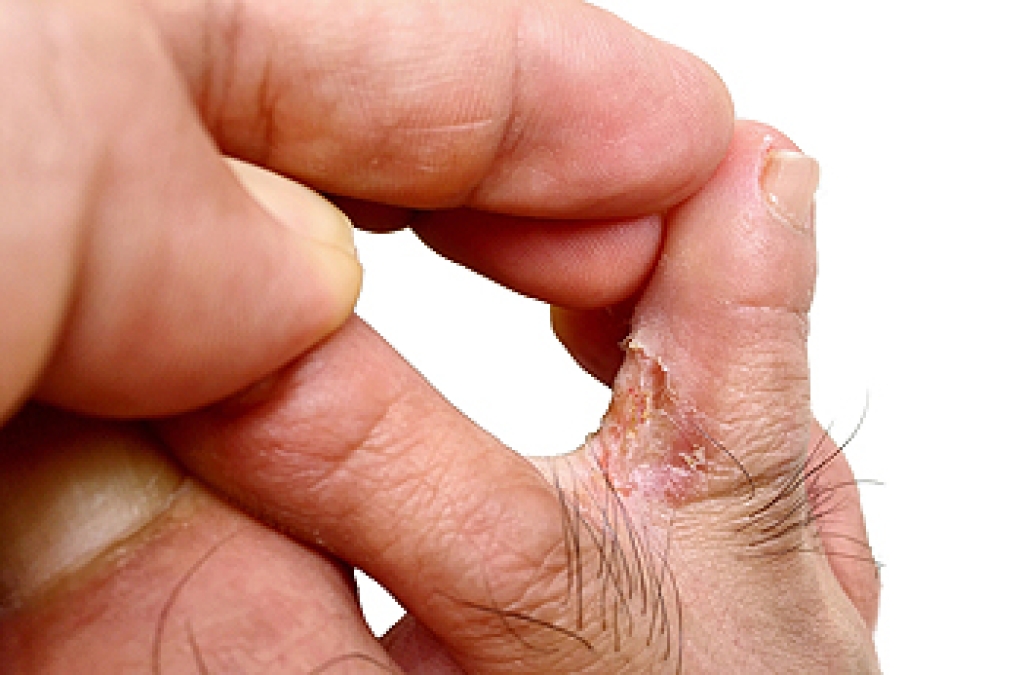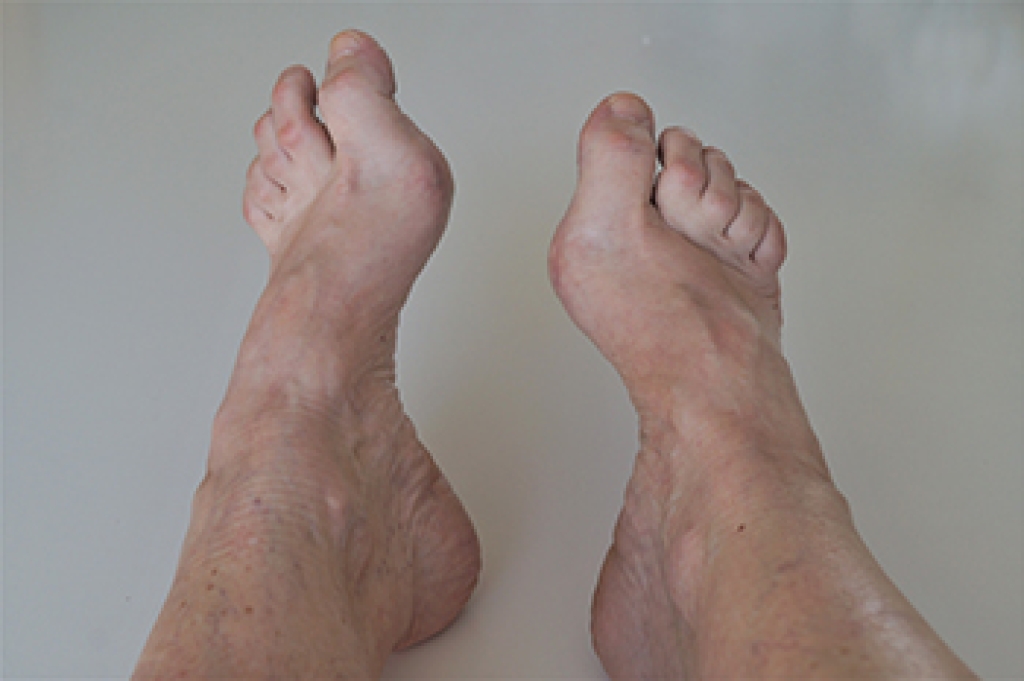
Morton's neuroma is a painful condition caused by thickening of the tissue surrounding a nerve between the toes, most commonly between the third and fourth toes. It develops when the nerve is compressed or irritated over time. Common causes include wearing high heels, narrow or pointed shoes, repetitive impact activities, and foot deformities such as bunions or hammertoes. Symptoms include burning pain, tingling, numbness, and the sensation of standing on a small stone. Risk factors include excessive walking or running, improper footwear, and certain foot shapes. A podiatrist can provide an accurate diagnosis, recommend footwear modifications, offer nonsurgical treatments, and guide long-term management. If you have pain in this part of your foot, it is suggested that you consult a podiatrist who can accurately diagnose and treat Morton’s neuroma.
Morton’s neuroma is a very uncomfortable condition to live with. If you think you have Morton’s neuroma, contact one of our podiatrists of Columbus Podiatry & Surgery. Our podiatrists will attend to all of your foot care needs and answer any of your related questions.
Morton’s Neuroma
Morton's neuroma is a painful foot condition that commonly affects the areas between the second and third or third and fourth toe, although other areas of the foot are also susceptible. Morton’s neuroma is caused by an inflamed nerve in the foot that is being squeezed and aggravated by surrounding bones.
What Increases the Chances of Having Morton’s Neuroma?
- Ill-fitting high heels or shoes that add pressure to the toe or foot
- Jogging, running or any sport that involves constant impact to the foot
- Flat feet, bunions, and any other foot deformities
Morton’s neuroma is a very treatable condition. Orthotics and shoe inserts can often be used to alleviate the pain on the forefront of the feet. In more severe cases, corticosteroids can also be prescribed. In order to figure out the best treatment for your neuroma, it’s recommended to seek the care of a podiatrist who can diagnose your condition and provide different treatment options.
If you have any questions, please feel free to contact our office located in Columbus, OH . We offer the newest diagnostic and treatment technologies for all your foot care needs.




